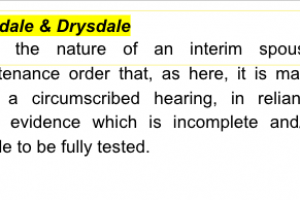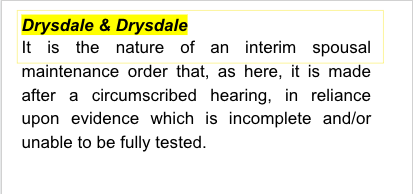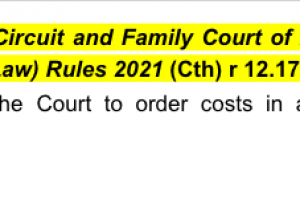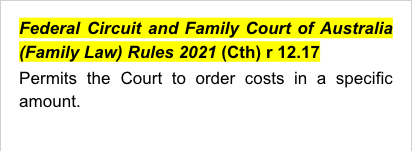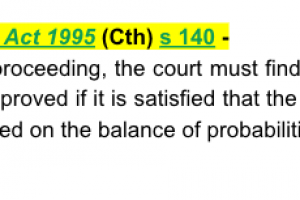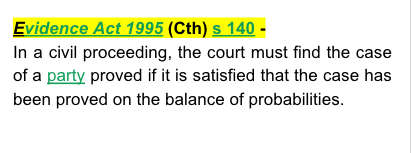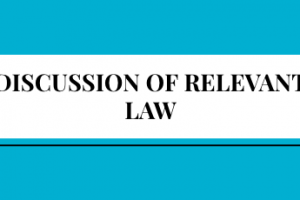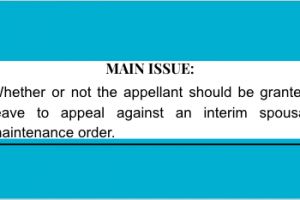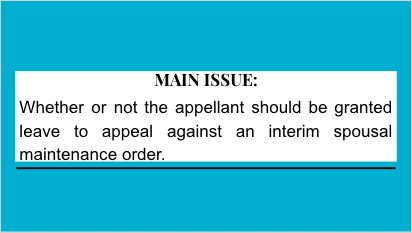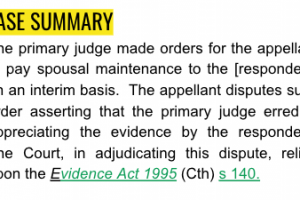- · 4853 friends
Appellant Opposes Orders for Spousal Maintenance

Badir & Badir [2022] FedCFamC1A 109 (19 July 2022)

The primary judge made orders for the husband to pay spousal maintenance to the wife on an interim basis. The husband disputes such order asserting that the primary judge erred in appreciating the evidence by the wife. The Court, in adjudicating this dispute, relied upon the Evidence Act 1995 (Cth) s 140.

Facts:
The parties initially commenced cohabitation in 1993 and separated for the first time in July 2013. During that period they had a son, X, born in 2002. The parties had reconciliation in June or July 2014, however, they subsequently separated on a final basis in July 2020. The parties nevertheless continued to reside under one roof and continued to do so up until the matter was heard by the primary judge.
During the period between the parties’ initial separation in 2013 and final separation, the wife had, in April 2013, served the husband with an Initiating Application seeking final parenting and property orders. Those proceedings were resolved during the period of the parties’ second reconciliation by way of consent orders made on 20 August 2014 by Judge Walker, now retired, of the then Federal Circuit Court of Australia.
The consent orders contained a notation that “the husband advised the court today that the parties have reconciled.” In mid-July 2017, the husband purchased a hospitality franchise in his sole name as the director of J Pty Ltd.
He was initially the sole director and 100% shareholder of the company. In 2018, the wife became a co-director of J Pty Ltd and an equal shareholder. The husband contends that, between October 2018 and September 2021, the wife withdrew at least $72,893.12 from J Pty Ltd which he asserts was used for her personal expenses, including in respect to financing a motor vehicle for her personal use.
Of this amount, the husband contends that $35,212.03 was sourced directly from the N Bank account ending in 36 (“the J Pty Ltd business account”) and, during the period October 2018 to May 2021, $37,681.09 was withdrawn by the wife and placed in her AMEX account ending in 01 for further personal expenditure.
This, the husband contends, is corroborative evidence of the wife applying the funds from the J Pty Ltd business account for her personal expenses. On 30 October 2020, the wife filed an Initiating Application in which she sought final orders in relation to a property settlement between herself and the husband, including various interim orders.
The wife sought an order that commencing the first Monday from the date of these Orders, the husband shall pay to the wife by way of periodic spousal maintenance the sum of $775 per week into an account nominated by her.” On 26 November 2020, the husband filed his Response to the wife’s Initiating Application, which sought orders for the wife’s Initiating Application to be dismissed with costs and “that within 14 days of the date of these orders, the wife shall vacate the matrimonial home.”
The primary judge made orders for the husband to pay spousal maintenance to the wife on an interim basis being in accordance with these orders will commence only upon the wife ceasing to reside at the matrimonial home, and establishing her own residence in alternate premises. The husband has appealed against those orders by Notice of Appeal filed 8 November 2021.

Issue:
Whether or not the appellant should be granted leave to appeal against an interim spousal maintenance order.

Applicable law:
Evidence Act 1995 (Cth) s 140 - provides that in a civil proceeding, the court must find the case of a party proved if it is satisfied that the case has been proved on the balance of probabilities.



Analysis:
The husband has failed to demonstrate error on the part of the primary judge in determining that the wife has, on average, received the amount of $750 per week. A tender bundle provided by the husband referred to the wife’s payslips in the period between May 2021 to May 2020 as showing a weekly gross income of $750 per week, with taxation deducted at $90 per week, leaving weekly take-home pay at $660 per week.
The net amount of $660 received by the wife is also reflected in the wife's H Bank account. It is also consistent with the wife's taxation return for the year ended 30 June 2021, being the most recent finalised financial year produced.
The primary judge was entitled to accept the wife's evidence that, while she did receive funds from the business account over and above her salary, those funds were applied to meet the expenses referred to in items 18 and 30 of her Financial Statement. That is, while included as funds received on the positive side of the balance sheet, these amounts were also duly included on the negative side as debits to meet the expenses set out in items 18 and 30 of the Financial Statement. No error has been demonstrated in the manner in which the primary judge has treated the funds accessed by the wife from the business account in determining what her weekly needs are.
Conclusion:
The husband's application for leave to appeal is refused. The Notice of Appeal filed on 8 November 2021 is dismissed. The husband pay the wife's costs in the sum of $17,416.65 within 28 days.


